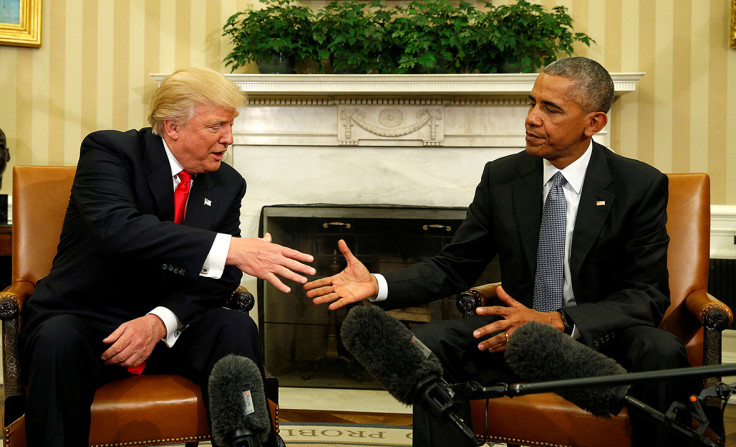Barack Obama strongly urges Donald Trump to 'protect the Dreamers' in immigration plans
Obama addressed the issue 'very directly' in meeting with president-elect Donald Trump.

President Barack Obama has expressed hope that Republican Donald Trump will protect 'Dreamers' from deportation once he takes office.
In a meeting with fellow Democrats, Obama reportedly relayed details of his conversation with Trump, in which he urged the former business mogul not to discontinue the 2012 executive action that protects so-called 'Dreamers' from being deported.
"His message was, those are good kids who didn't do anything wrong," a lawmaker told Politico. "That was heartfelt. He brought that up."
Obama said he had spoken to Trump "very directly" about the Deferred Action for Childhood Arrivals programme and the benefits it brings, in the face of Trump's plans on immigration.
Trump took a tough stance on immigration during his presidential campaign, pledging to "immediately deport" millions of undocumented immigrants once he took office, beginning with those who have criminal records, he previously said in an interview with CBS.
"What we are going to do is get the people that are criminal, have criminal records, gang members, drug dealers — we have a lot of these people, probably two million, it could even be three million — we're getting them out of our country or we're going to incarcerate," Trump explained.
The Pew Research Center estimates there were 11.1 million undocumented immigrants in the US in 2014. But an estimate from 2014 by the Migration Policy Institute put the total number of criminal unauthorised migrants in the US at 820,000.
Who are Dreamers?
The term refers to young undocumented immigrants who were brought to the US as children, have lived and received education in the country, and in many cases identify as American.
It is inspired by the The DREAM Act (short for Development, Relief and Education for Alien Minors Act), which would grant legal status to a large percentage of such children, but has yet to pass Congress since its first iteration in 2011.
This is well shy of Trump's lower two million target, meaning he will have to chase down non-criminal illegal immigrants aggressively during his four years, or set a time frame that extends beyond the 2020 election.
Trump's proposals, including potentially removing sanctuary cities, which protect undocumented immigrants, have prompted fears that families will be separated, and that many people who may have been granted amnesty to remain in the US will face an uncertain future.
© Copyright IBTimes 2024. All rights reserved.






